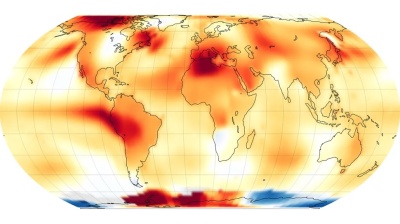Hungary’s controversial "child protection" law violates EU rules by restricting access to LGBTQ content, according to Tamara Capeta, Advocate General of the European Court of Justice.
In a non-binding opinion published on June 5, Capeta stated that the legislation infringes upon internal market rules, fundamental rights, and the EU’s founding values, as outlined in Article 2 of the Treaty on European Union.
The law, passed in 2021 and aimed at shielding minors from harmful material, prohibits the depiction of gender identities that differ from birth sex, gender reassignment and homosexuality in media accessible to children.
Capeta found the restrictions unjustified and discriminatory, stating they reflect a value judgment that non-heterosexual and non-cisgender lives are inferior. Such interference, she said, "significantly deviate[s] from the model of a constitutional democracy" enshrined in the EU treaties.
"While the CJEU sees gender propaganda as a fundamental value of the EU, the Hungarian government sees the protection of families as a core value," Culture and Innovation Minister Balazs Hanko commented.
The CJEU is expected to issue its final ruling in the coming months.
The European Commission launched an infringement procedure four years ago because Hungary had breached EU services law, data protection rules and the Charter of Fundamental Rights.
Just after the launch of the legal procedure, Prime Minister Viktor Orban announced a referendum on the controversial anti-LGBTQ law timed for the election. Although for each question, over 92% of valid votes were "no", the referendum was called invalid as the number of valid votes fell short of the required 50% threshold.
The Orban government’s anti-LGBTQ agenda has become a central pillar of its identity politics and broader culture war strategy, advanced through constitutional changes, legislation and regulatory measures.
Hungary’s veteran leader has successfully mobilised his conservative and rural voters on this agenda, which has also allowed him to divert attention from other policy issues or the cost of living crisis. Orban had used criticism from the EU to strengthen his narrative of Hungary as a sovereign nation under siege from liberal elites.
In March, Hungary's parliament approved legislation in expedited procedure that would effectively ban Pride marches under the guise of child protection. The bill amended the 2018 assembly law to outlaw gatherings deemed to violate child protection regulations, specifically citing the "promotion or display of homosexuality."
The government provided the constitutional basis for curtailing the right to assembly and effectively banning Pride marches, as the 15th amendment of the Basic Law elevated children's right to protection for their physical, intellectual, and moral development above all other fundamental rights, except the right to life.
Fidesz lawmakers further tightened constitutional definitions of gender, determined solely by biological sex at birth, and reinforced restrictions on LGBTQ discourse in public spaces.
In a decree published on June 5, the government has formally banned the display of rainbow flags and other LGBTQ symbols on state and government buildings, including the Hungarian National Bank. The decree published in the official gazette prohibits symbols that refer to or promote "various sexual and gender orientations" or political movements representing them.
Organisers of the Budapest Pride said they are planning to move ahead with the event on June 28, despite the ban.
News

Iraq greenlights pharmaceutical factory and power projects in reconstruction push
Iraq approves pharmaceutical factory in Mosul and new power projects as part of reconstruction drive. Committee chaired by PM Al-Sudani endorses housing, electricity and industrial investments.

Kremlin does not rule out Putin meeting with Trump envoy in Moscow
The Kremlin has not ruled out the possibility of a meeting between Russian President Vladimir Putin and US President Donald Trump's special envoy Stephen Witkoff this week.

Several missing as flash floods hit 70 residential areas and 34 homes in Russia's Krasnodar region
Torrential rains in Russia's Krasnodar region have flooded 70 residential areas and 34 homes in the villages of Defanovka.

EABL profit rises to $94.30mn amid looming alcohol law changes in Kenya
East African Breweries PLC (EABL) posted a net profit of KES 12.198bn ($94.30mn) for the year ended June 30, 2025.




